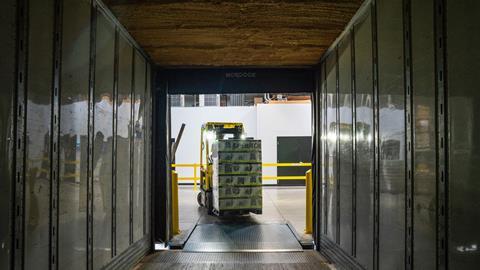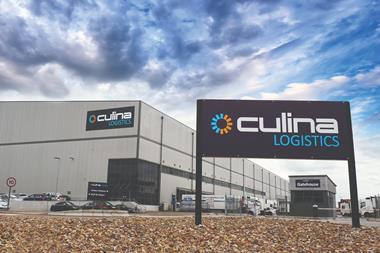![Guide to SMEs_Article image_long[3]](https://dmrqkbkq8el9i.cloudfront.net/Pictures/480xany/2/4/1/216241_guidetosmes_articleimage_long3_307021.jpg)
With Covid-19 causing major disruption and uncertainty in the grocery market, SMEs are increasingly looking to outsourcing as a way of managing overheads and reducing risk, according to Young Foodies.
So for the latest in our Guide for SMEs series, we spoke to Young Foodies co-founder Chris Green to get his insight on outsourcing supply chain functions.
Why would a brand outsource their operations?
When people talk about outsourcing their supply chain, they typically refer to outsourcing the physical production and handling of their goods to third-party manufacturing partners and logistics providers, run by an internal supply chain manager.
Less commonly, SMEs outsource their supply chain management function to specialist professional service providers. Brands are opting for this now more than ever to reduce their fixed costs and allow themselves the flexibility to adapt operations as sales and external factors dictate.
What are the advantages of outsourcing as an SME?
Supply chain is a highly specialist area and getting it wrong can be expensive and potentially damaging for the brand. Some of the many benefits include:
- Always-on: Small brands are experts at wearing many hats, however even an experienced, multitasking and super organised supply chain manager can only do so much. Having an outsourced team of experts provides consistent top-notch delivery without the impact of employee annual leave or sick days
- Flexibility and agility: Supply chain requires quick thinking and agility in order to keep operations flexible enough to adapt to a brand’s growth and decline phases. It must balance ‘business as usual’ transactional work with highly commercial project-based initiatives
- Commercial benefit: By outsourcing a team, you can easily dial up or down the levels of capability you need during the year, and importantly, pay accordingly
- No employment costs: Working with an external partner means lower fixed employment costs and the associated recruitment fees
- It’s good for the industry: In a recent Young Foodies survey conducted with retail buyers, third-party logistics providers and wholesalers, supply chain was cited as one of the biggest frustrations when working with challenger brands. Having to work with thousands of individual supply chain managers is difficult so they often prefer to have one touchpoint representing multiple brands.
Are there specific tasks/parts of the business that are easy wins for SMEs to outsource?
Lots of brands outsource all elements of the back office from finance and accounting to legal, insurance and supply chain. These tasks are less buyer-facing and therefore founders are usually more confident outsourcing them.
Outsourcing production planning, materials supply and the downstream customer supply elements of the supply chain are easy wins and can take huge amounts of time off the brand teams. It also makes sense for SMEs to outsource the completion of discrete projects.
What are the risks?
Not treating your partner like a partner carries the risk of a relationship breakdown. It risks them missing critical pieces of information that could cause potential issues further down the line.
Not giving your partner autonomy, trust and control. With such a sensitive and complex chain of events in play at any given time, it’s important that control is centralised and the partner can make the best decisions for you.
Treating it as low value and transactional. Supply chain is not just about processing orders. In fact, between the costs of goods and logistics, the P&L of the supply chain team is the best part of 60% of a brand’s outgoings. It’s highly commercial and warrants investment.
Treating it as a silo from the rest of the business. The supply chain team are those delivering on the promises of the sales, marketing and product teams and they feed directly into the finance agenda, so partners must be seen as an extended part of the team.
What should SMEs consider before they make these changes?
Is outsourcing the right approach? Some SMEs prefer their supply chain team to do a little bit of everything, from trade shows to product development, and even finance. An outsourced partner would have much clearer lines. It’s the difference between having specialist or generalist capabilities on board.
Can they truly trust another party? If a brand finds it challenging to relinquish some control, it’s probably not a solution for them. Try to outline the requirements needed from a reporting and control standpoint to ensure you remain confident, comfortable and in the know at all times.
Do they understand the scope of the arrangement? What is the partner doing and specifically what are they not doing? It’s important that every part of the supply chain matrix is accounted for.




















No comments yet